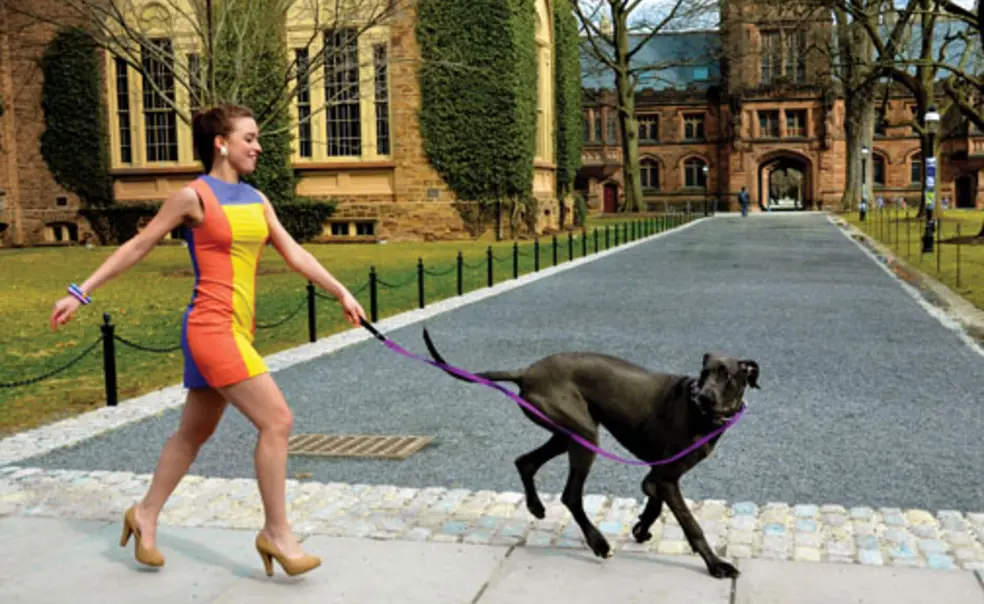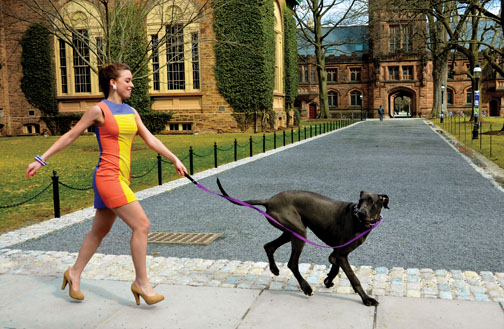Student Dispatch: Finding Ways to Think About Fashion as Far More Than a Passing Fancy
Mention Princeton students’ interest in fashion, and what often comes to mind is the array of trendy boutique shops along Nassau Street. But for the seniors who founded a campus group called the Sustainable Fashion Initiative (SFI), fashion is a way to put a “passion for clothing into a larger social context,” said co-founder Carmina Mancenon ’14.
With a Fashion Week runway show and lectures, a glossy new style magazine called Verte (French for “green”), and a campus clothing swap, SFI’s goal is to encourage students to look at the fashion industry in terms of environmental impact, fair-labor practices, marketing strategies, and women’s economic independence.
“The underlying issues that we are addressing touch upon extremely serious problems in consumerism as a whole,” said Jenna Rodrigues ’14, an economics major.
The group has grown steadily since its creation two years ago. The first runway show drew about 75 people. The second, held last spring at the University Art Museum, capped attendance at 110 people; an additional 50 attended a pre-runway showcase. After the show, 60 people celebrated the launch of Verte.
This year SFI is planning a runway show each semester, do-it-yourself workshops on recycling and “upcycling” (reusing with a higher value) clothing, and a student-initiated course that has been submitted for approval. The group’s founders have begun the process of establishing SFI as a nonprofit and are looking to expand to other colleges.
SFI’s academic focus makes it distinctive, Mancenon said. “The problems that sustainable fashion poses are so intricate that they require a lot of intellectual rigor,” she said. SFI has been “trying to incorporate more research into sustainable fashion. As Princeton students, that’s what we’re good at.”
While male participation in SFI events has been low, the group hopes that its message of how fashion can be used as a vehicle for social change will attract more men. “When we see male students coming to our lecture series, we see them starting to see that [fashion] is not just an avenue for women,” Mancenon said.
And that preppy stereotype? SFI members say fashion at Princeton is much more than that. “I love how diverse people are in their clothes and fashion and ideas of what’s beautiful,” said Macy Manning ’16, one of the group’s co-presidents. “I think that opens up the door to people being open-minded about sustainable fashion.”














No responses yet